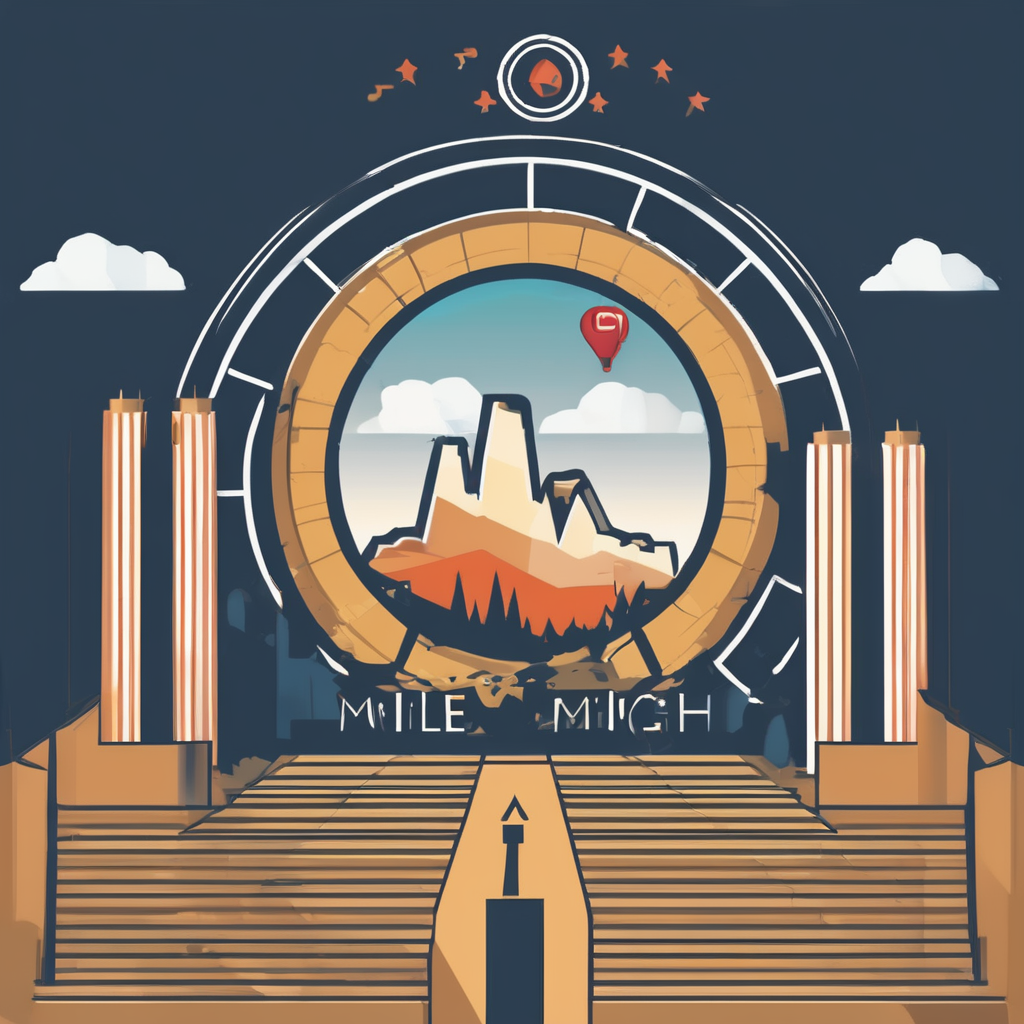UK automotive industry digital marketing landscape
In recent years, the UK automotive digital marketing sector has experienced a significant transformation from traditional to digital-led approaches. The automotive industry in the UK has increasingly embraced digital channels to reach a more tech-savvy audience, integrating data-driven insights to tailor messaging and improve engagement. This transition reflects broader digital transformation trends shaping the UK car market, where online vehicle searches and digital-first buyer journeys dominate.
Key shifts include the adoption of social media platforms, targeted digital advertising, and enhanced website experiences focused on usability and personalization. These methods outperform classic print and broadcast advertising by offering measurable results and more precise customer targeting, crucial for standing out in a competitive market.
Topic to read : What Are the New Sustainability Challenges Facing the UK Automotive Industry?
The main drivers behind this digital pivot are evolving consumer behaviours demanding convenience and transparency, ongoing advancements in analytics technology, and increasing pressure on UK car companies to innovate amid challenges such as changing powertrain regulations and fluctuating demand. Automotive brands now prioritize digital marketing strategies that integrate real-time customer data to refine campaigns and optimise spend, reinforcing a dynamic and growth-oriented UK automotive digital marketing landscape.
UK automotive industry digital marketing landscape
The UK automotive industry has rapidly embraced digital transformation, shifting from traditional advertising methods to more dynamic, technology-driven marketing strategies. This shift reflects an evolving UK car market where consumers increasingly rely on online resources to gather information and make buying decisions.
Also read : What Are the Essential Steps for Setting Up an Automotive Business in the UK?
Adoption of UK automotive digital marketing includes integrating social media, search engine optimisation, and data analytics into core promotional efforts. Key drivers of this digital innovation revolve around enhancing customer experience, increasing engagement, and responding to competitive pressures. UK car companies now focus heavily on personalised digital outreach and real-time communication, which align with broader consumer trends valuing convenience and immediacy.
The industry’s transformation is also propelled by advancements in technology, such as mobile accessibility and sophisticated targeting tools. With digital transformation at the forefront, businesses can reach potential customers more efficiently, tailoring messages to specific demographics within the diverse UK car market. This tailored approach boosts effectiveness over previous blanket marketing campaigns, demonstrating clear benefits of adopting modern digital strategies in the UK’s automotive sector.
Social media campaigns and customer engagement
Social media marketing has become a cornerstone of UK car brands’ strategies to boost brand awareness and deepen customer engagement. Platforms like Facebook, Instagram, and TikTok dominate the landscape, each offering unique campaign formats such as live streams, stories, and influencer takeovers to capture diverse audiences.
Successful campaigns tend to focus on interactive content that encourages users to participate, comment, and share. For example, UK automotive companies frequently use Instagram Stories for behind-the-scenes looks at new model launches or Facebook events to create buzz around dealership promotions. These tactics help foster a sense of community and loyalty by making customers feel personally connected to the brand.
Building long-term relationships on social media requires consistent engagement and timely responses to inquiries or feedback. Brand loyalty is strengthened through exclusive online offers, user-generated content competitions, and customer testimonials featured across channels. By integrating social media marketing with broader digital initiatives, UK car brands effectively enhance visibility while generating measurable engagement metrics that inform ongoing strategy refinement. This dynamic approach confirms why social media remains a vital tool in the evolving UK automotive digital marketing landscape.
UK automotive industry digital marketing landscape
The UK automotive digital marketing sector has undergone a profound transformation as the automotive industry shifts firmly into digital realms. Traditional advertising has given way to sophisticated digital transformation strategies that align closely with evolving consumer behaviours in the UK car market. Key elements include the widespread adoption of digital channels like social media, search engines, and targeted online advertising, which enable brands to reach a more discerning, tech-savvy audience.
This transformation is driven by several factors. Chief among them is the demand for personalised experiences—UK car companies increasingly harness data to tailor messaging and offers to individual customers. Advancements in analytics and mobile technology have empowered marketers to optimise campaigns in real time, improving customer engagement and marketing ROI. Additionally, competitive pressures compel brands to innovate constantly, leveraging digital tools for better market segmentation and customer insights.
The shift away from traditional print and broadcast towards digital-first approaches provides measurable benefits. Enhanced targeting accuracy reduces wasted spend and boosts campaign effectiveness, while digital channels facilitate two-way communication, helping UK automotive brands build deeper, long-term relationships with consumers. This evolving digital landscape is reshaping how the UK automotive industry connects with its audience, setting new standards in marketing performance and customer responsiveness.
UK automotive industry digital marketing landscape
The UK automotive digital marketing scene has witnessed a rapid shift from classic advertising to data-driven, digital-first strategies. Within the automotive industry, this transformation is largely driven by consumers’ growing preference for seamless online experiences within the UK car market. As digital channels become primary touchpoints, car brands leverage sophisticated tools like real-time analytics and personalised messaging to engage prospects more effectively.
Notable shifts include moving away from broad-spectrum campaigns to more targeted efforts utilising social media, search engine marketing, and content optimisation. These shifts enable brands to measure engagement precisely and adapt dynamically. The key drivers behind this digital innovation involve:
- Changing consumer behaviours demanding convenience and transparency
- Advances in technology, especially mobile and data analytics
- Competitive pressures pushing companies to innovate for improved ROI
For example, many UK car companies now invest heavily in platforms that unify customer data to deliver tailored offers, improving conversion rates and customer retention. This ongoing digital transformation underlines the industry’s commitment to embracing modern marketing frameworks that resonate with today’s digitally savvy buyers.
UK automotive industry digital marketing landscape
The UK automotive digital marketing sector has firmly transitioned from conventional advertising to digitally focused strategies, marking a significant evolution within the automotive industry. This shift is most notable in how UK car market players deploy data-driven insights and technology to better engage buyers, highlighting the core of digital transformation efforts.
Key industry shifts include replacing broad, untargeted campaigns with personalised communications emphasising real-time responsiveness. Digital channels such as programmatic ads, social media, and mobile apps now dominate marketing spend, reflecting buyers’ preference for instant, convenient interaction. These methods yield measurable metrics like conversion rates and customer retention that traditional media cannot match.
The drivers behind this innovation are multifaceted: rising consumer expectations for tailored experiences, advancements in analytics enabling precise audience segmentation, and competitive pressure to optimise marketing ROI amid fluctuating car sales. Brands embrace automation platforms to dynamically adjust campaigns based on customer data, ensuring marketing budgets are used efficiently.
Ultimately, this digital transformation strengthens how UK automotive companies connect with diverse audiences, boosting engagement and brand loyalty. It sets a new standard that leverages technology, data, and consumer insights to reshape marketing across the UK car market.
UK automotive industry digital marketing landscape
The UK automotive digital marketing sector has undergone a decisive shift, marked by the automotive industry’s move from traditional advertising to digital-first strategies. In the UK car market, this transformation reflects consumer demand for more personalised and interactive experiences online.
This evolution is driven largely by digital transformation initiatives that integrate data analytics and customer insights to optimise marketing efforts. UK car companies increasingly use real-time data to tailor campaigns, improving both engagement and conversion rates by addressing individual preferences rather than mass audiences.
Key drivers of this change include the rising importance of mobile accessibility and the proliferation of digital channels. The integration of search engine marketing, social media, and targeted online advertising has replaced blanket campaigns, enabling precise segmentation in the competitive UK automotive market. Furthermore, advancements in technology ease the measurement of campaign success, allowing marketers to continually adapt their strategies.
By adopting these digital tools, UK automotive brands enhance responsiveness and customer connections, reflecting how digital transformation reshapes the marketing landscape. This focus on personalised, data-driven outreach represents the sector’s commitment to meeting modern consumer expectations with innovative, effective digital marketing solutions.
UK automotive industry digital marketing landscape
The UK automotive digital marketing sector exemplifies a decisive shift from traditional media to dynamic, tech-driven approaches tailored to the UK car market. This transition is characterised by widespread adoption of digital channels, including social media, programmatic advertising, and mobile platforms. These tools enable brands within the automotive industry to deliver personalised messaging and engage more effectively with a digitally savvy audience.
Key industry shifts involve moving away from broad, impersonal campaigns toward targeted, data-driven strategies. Real-time analytics allow UK car companies to optimise marketing spend and tailor offers to individual consumer profiles. This transformation is propelled by evolving customer expectations for transparency and convenience, alongside competitive pressures requiring greater innovation and efficiency.
Technological advancements have empowered the UK automotive industry to integrate sophisticated audience segmentation, improving campaign precision. Consequently, digital transformation delivers measurable benefits—higher engagement rates, increased brand loyalty, and stronger connection with diverse market segments. For instance, brands utilise unified customer data platforms to adjust advertising dynamically, ensuring marketing budgets align closely with performance metrics.
In summary, the digital transformation sweeping the UK car market enables a transition toward smarter, more responsive marketing that strengthens the automotive industry’s competitive position in a rapidly changing environment.
UK automotive industry digital marketing landscape
The UK automotive digital marketing sector reflects a fundamental shift in the automotive industry from traditional advertising toward highly personalised, data-driven strategies. This digital transformation responds to evolving consumer behaviours within the UK car market, where buyers seek seamless, interactive experiences online.
Key industry shifts include extensive use of advanced analytics and mobile technology, allowing companies to optimise campaigns in real time. Rather than broad messaging, brands focus on tailored communications that speak directly to individual preferences, which increases conversion rates and customer retention. Digital channels such as programmatic advertising, social media, and search engine marketing dominate spend, replacing less measurable print or broadcast methods.
The main drivers behind this digital innovation are multifaceted:
- Growing demand for personalised, transparent buying journeys
- Technological advances enabling precise audience segmentation and quick campaign adjustments
- Heightened competition pushing car companies to innovate continually for improved marketing ROI
By leveraging UK automotive digital marketing tools to harness customer data, brands enhance engagement and responsiveness, establishing stronger loyalty in a competitive UK car market. This ongoing digital transformation underscores the sector’s commitment to deploying technology and insights for smarter, customer-centric marketing.
UK automotive industry digital marketing landscape
The UK automotive digital marketing sector has decisively moved from traditional to data-driven, technology-focused methods. The automotive industry now heavily invests in real-time analytics, personalised messaging, and targeted digital channels that resonate with evolving consumer preferences in the UK car market. This digital transformation enables more precise campaign optimisation, enhancing engagement and driving measurable results.
Key shifts include replacing broad advertising with tailored initiatives that leverage customer data to segment audiences effectively. Brands utilise tools like programmatic ads, social media marketing, and mobile platforms to deliver relevant content instantly. These strategies underscore the importance of convenience, transparency, and immediate interaction sought by today’s buyers.
Three main drivers fuel this digital innovation: increasing consumer expectations for personalised experiences; advancements in analytics and mobile technology improving campaign agility; and competitive pressures pushing UK car companies to maximise ROI and market responsiveness. As a result, digital transformation reshapes marketing approaches, allowing brands to build stronger, long-term consumer relationships within the dynamic UK automotive landscape.
UK automotive industry digital marketing landscape
The UK automotive digital marketing sector is characterised by its rapid integration of digital technologies, fundamentally reshaping the automotive industry. The UK car market has shifted focus from legacy advertising methods to more sophisticated, data-centric digital approaches designed to meet evolving consumer expectations.
This digital transformation notably includes the deployment of real-time analytics and personalised marketing tools. UK car companies now prioritise tailored messaging, moving away from broad, generic campaigns toward targeting specific customer segments with relevant offers. This shift enables more precise allocation of marketing budgets and improves campaign ROI by reducing wasted spend.
Key drivers fueling this innovation include growing consumer demand for seamless, transparent online experiences and technological advancements such as mobile accessibility and AI-driven analytics. Additionally, competitive pressures force UK car brands to continually innovate to maintain market share and attract digitally savvy buyers.
Together, these factors have elevated digital marketing to the core of UK automotive strategy, creating a landscape where technology and customer insights drive stronger engagement and measurable results across the UK car market. This evolution underscores the industry’s commitment to harnessing digital tools throughout its marketing efforts in a rapidly changing environment.









